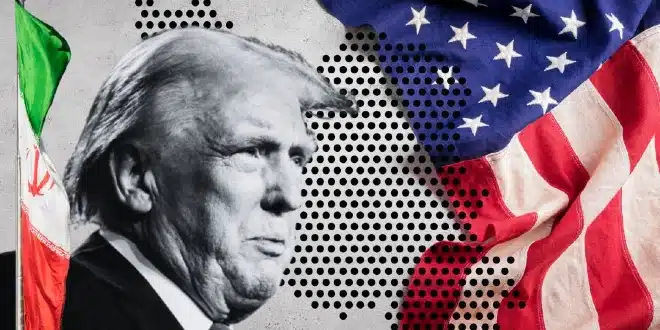The United States has indicated that additional nuclear negotiations with Iran are expected soon, even as President Donald Trump reaffirmed his administration’s hardline stance on sanctions enforcement. The ongoing diplomatic efforts remain fragile, with the next planned round of U.S.-Iran talks—originally expected to take place in Rome—now postponed.
Iran confirmed that the fourth round of discussions, intended to build on prior engagements with the Trump administration, has been delayed. Omani officials, acting as mediators in the long-standing U.S.-Iran dispute, cited logistical complications as the cause of the disruption. However, U.S. State Department spokeswoman Tammy Bruce clarified that no specific date or venue had been confirmed for the meeting, and she stressed that another round is still anticipated in the near future.
Sanctions Enforcement and Strategic Messaging
President Trump, who withdrew from the 2015 Joint Comprehensive Plan of Action (JCPOA) in 2018, has continued to advocate for a renegotiated agreement. Although he has expressed a degree of reluctance, he has returned to a policy of intense economic pressure on Tehran, driven in part by national security advisors within his administration.
In a renewed push to isolate Iran economically, Trump has directed efforts to block the global sale of Iranian energy products. This includes imposing secondary sanctions on any country or individual purchasing Iranian oil or petrochemical goods. The President issued a directive via social media, stating that all such transactions must cease immediately and warning of penalties for non-compliance.
This position was reinforced by the recent U.S. sanctions placed on seven companies accused of facilitating the transportation of petroleum products originating in Iran. The White House maintains that such measures are necessary to curb funding to Iran’s controversial nuclear program and its regional military activities.
Tensions in the Region and Diplomatic Friction
U.S. Secretary of Defense Pete Hegseth issued a public warning to Iran regarding its alleged support for Huthi rebels in Yemen. These warnings come amid escalating hostilities in the Red Sea region, where the U.S. military has conducted airstrikes in response to missile launches by the Huthis, which the group claims are in solidarity with Palestinians.
Hegseth’s remarks suggested potential military consequences, signaling that the U.S. would act at a time and location of its choosing should Iran continue to support the Huthis militarily.
Iran’s Foreign Ministry responded by criticizing the U.S. for what it described as inconsistent policy and a lack of genuine commitment to diplomacy. Iranian officials also condemned the use of economic sanctions, which they characterized as coercive tactics intended to undermine legitimate international relationships between developing nations.
Internal Divisions Within U.S. Foreign Policy Team
The ongoing negotiations have been led on the U.S. side by Steve Witkoff, a business associate of Trump who has taken on a diplomatic role. Witkoff has described the tone of recent talks with Iran as constructive and hinted at flexibility from both sides. However, Secretary of State Marco Rubio, who now also serves as National Security Advisor, has taken a firmer stance. Rubio has reiterated that any new agreement must result in the complete dismantling of Iran’s nuclear capabilities.
Observers note that this position creates a major obstacle, as Iran has shown little indication that it is willing to abandon its entire nuclear program. The previous nuclear deal, brokered under former President Barack Obama in 2015, allowed Iran to maintain a limited civilian nuclear infrastructure under international oversight. That agreement also involved the European Union’s major powers, along with Russia and China, all of whom opposed Trump’s 2018 decision to withdraw.
European Engagement Stalls Amid Uncertainty
Ahead of the anticipated U.S.-Iran meeting, technical discussions involving European diplomats were scheduled to take place. These sessions, aimed at addressing specific details of Iran’s nuclear program, have also been postponed due to the broader delay in negotiations. French Foreign Minister Jean-Noel Barrot stated that the relevance of those technical talks had been lost in light of the postponed diplomatic meeting.
Despite persistent denials from Tehran, Western governments continue to express concerns that Iran may be seeking to develop nuclear weapons capabilities under the guise of a civilian program. Iran maintains that its nuclear activities are solely for peaceful energy production and medical use.
The next steps in U.S.-Iran nuclear diplomacy remain uncertain. While the Trump administration continues to apply economic and strategic pressure, channels for negotiation remain open—though tempered by diverging objectives and a climate of deep mistrust.


